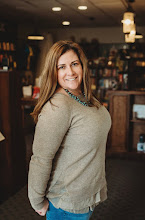Wednesday, January 10, 2018
Shielding Our Students from Darkness
This past November at NCTE I stood in the exhibit hall with tears rolling down my face while standing at a publisher's booth. I had heard about Matt de la Peña's new book that Loren Long illustrated, but I hadn't seen it yet. Reading Love in that booth, that exhibit hall, was one of those moments that I won't soon forget. The noises of the exhibit hall melted away. I felt like I was in this quiet space, the words whispered in my ears, the illustrations all I could see. I knew it was a book to share, a book to find yourself in, a book to comfort, a book to know that you are not alone.
Only a few hours later I spoke to a friend who said that a major player in the world of children's books had decided against carrying Love because of an illustration in the book. Matt describes the illustration in his beautifully written article which appeared in Time yesterday:
"In the scene, a despondent young boy hides beneath a piano with his dog, while his parents argue across the living room. There is an empty Old Fashioned glass resting on top of the piano." (Click HERE to read the full article.)
This notion of protecting children from darkness isn't new. Kate Messner wrote about it in regard to her book The Seventh Wish last year on her blog (HERE) when she was uninvited to a school visit. I'm currently reading S.E. Hinton's The Outsiders with my seventh graders. In an interview I listened to with Hinton she talks about how people took issue with The Outsiders for being dark, violent, but that was what she was seeing in her own school. Was she supposed to change her own truth to make others comfortable?
I've been in teaching awhile. I know there are times to shield our kids. I also know there are times to be there, with them, discussing the hard stuff. I remember September 11, 2001 like it happened yesterday. I absolutely shielded my students, my beautiful nine and ten year old kids, from the horror of that day while it was happening. But on the 12th? We talked about it. Some of my colleagues across the country didn't have that luxury. For some, the events unfolded outside of their windows. What I have learned is that kids are resilient, often more so than adults.
As we began The Outsiders this week we looked at the background of Oklahoma in the 1960s. Looking at the economy of Oklahoma, students noticed that the oil they had profited from began drying up during that time. We talked about how the loss of jobs in the oil fields and how it would create problems for families. When one student suggested that a family could just move to find another job, another student pointed out that they were saying that from a point of privilege, that moving requires money that often times, families don't have. Another student pointed that the loss of jobs in the oil business reminded them of the loss of jobs in regard to factories, to coal we see today. My seventh graders and I discussed the problems with automation, but also the advantages. We looked at why companies decided to leave our country and build factories elsewhere. One student pointed out that they now understood why I kept saying education was important - it often gave more opportunities for you in terms of career.
As we dove into The Outsiders, reading both together and on our own, we talked about the different characters. How Darry had to step up and become an adult, putting his own dreams aside for the sake of his siblings. We looked at Dally's life, what leads someone to make the choices he made. Yesterday our hearts broke a bit when we learned what Johnny went through with the Socs, what his home life is like. One student spoke up quietly that this book made him rethink what life is like for some kids, what judgements we make about others without realizing it. Another student quoted Pony when he said, "Just don't forget that some of us watch the sunset too." Kids nodded as I looked at their serious faces.
Life is hard, harder for some than others. My favorite part of teaching Language Arts is that we get to examine our own lives while learning about the lives of others - fictional and not. Reading makes us more empathetic people, if we let it. After twenty-one years of teaching I am still convinced that the world would be different if we all read, if we all soaked up stories that are not our own. Just as important is that reading allows us to see our own stories inside of books too. Some of our stories are "dark". I wish I could change that, but I can't.
What I believe is this... we don't need to shield our children from the darkness, but instead we need to walk into it with them, hand and hand, and ask them what they notice. Through that we can all grow and maybe find just a bit more love to share. One good way to do just that? Check out Matt and Loren's new book, the trailer is below.












